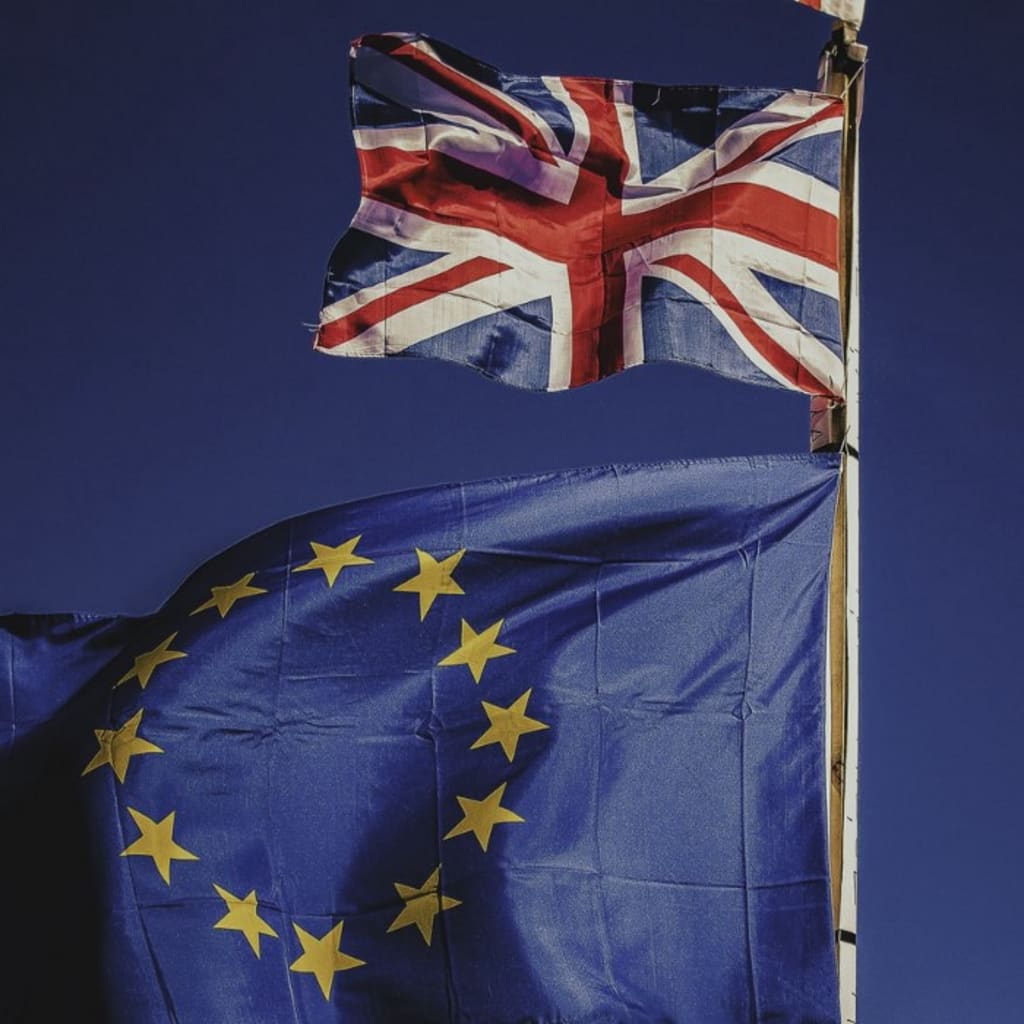The Impact of Brexit on the European Union
By definition, Brexit is a term created as a portmanteau of the phrase “British exit” which represents the United Kingdom’s (UK) withdrawal from the European Union (EU) taking place on the final day of January 2020. After a 47 year-long membership, the UK is the first and only member state to have left the Union.

Following this, both the Court of Justice of the European Union as well as EU law failed to have any primacy over the British laws with only minor exceptions in regions related to Northern Ireland.
The UK had the second largest nominal gross-domestic-product (GDP) in the EU and the fifth-highest in the world by 2018. Yet, Brexit resulted in a 13% net population decrease in the EU between 2019 and 2020.
Data from Eurostat suggests that if the UK had not left, the opposite would have occurred over the same period.
Furthermore, the contribution to the budget of the EU on behalf of the UK was nearly €20 billion in 2016. Upon removal of approximately €7 billion in subsidies received, losses in the EU budget were as high as 5% of the existing total.
Unless the EU reduces its budget, Germany is the most likely member to provide the largest share of resources with a net share of nearly €3 billion. The debate has continued between the members who desire to limit the budget to no greater than 1% of all combined members’ GDP as of March 2020.
It is clear that the UK served as a major contributor to the EU as an asset but also a barrier to those who supported directions that the British government firmly opposed.
Due to the fact that the UK existed as the third most populated state in the Union, comprising over 12% of the total, the UK significantly influenced the Council of the European Union as well as the European Parliament. Therefore, its absence greatly impacts the various institutions and their ideological balance.
Two blocs in the Council existed over the course of the UK’s membership, with each capable of developing a blocking minority. The first consisted of a protectionist bloc with primarily southern states. The second consisted of a liberal bloc with mainly northern states.
By being a member of the second, the departure of the UK hinders the strength of the liberal block as it has been a fervent and sizeable advocate of an economically liberal continent, further enlargement of the EU, and larger third-country trade deals.
In addition, it improves Germany’s position through the loss of counterweight. Despite this, Germany remains uncertain in its role if others attempt to ally against it.
Within the European Parliament, Brexit led to alterations in group representation, as it provided 5 seats to the European People’s Party (EPP) and 3 seats to Identity and Democracy (ID). Furthermore, it lost 29 seats belonging to the Non-Inscrits (NI), 11 seats belonging to Renew Europe, 7 seats belonging to the green, and 6 seats belonging to the Alliance of Socialists and Democrats.
In a similar fashion, most of the representatives of the UK participated as part of right-wing groups including the European Conservatives and Reformists as well as the Europe of Freedom and Direct Democracy. Both of these were led by members and built around the UK Independence Party and the British Conservative Party.
Furthermore, because of the UK Labour Party leaving as part of Brexit, the Progressive Alliance of Socialists and Democrats lost members. However, they were strengthened by the right’s loss such that they were able to form majorities without requiring conservative support from the European People’s Party.
This could potentially lead to a Parliament that would be open to passing extra regulations, less support for strong copyright protection, passing a similar budget with larger contributions of each member, support of financial transaction tax and tax harmonization, and giving less support to shale gas and nuclear energy to favor more renewable sources.
In the fields of defense and foreign affairs, the UK was noted as a critical asset to the EU. This is due to the fact that along with France, the UK existed as one of the major military powers with significant intelligence capabilities, a widespread network for diplomacy, and soft power.
Without Britain, foreign policy in the EU was less influential. The United States (US) observed the UK as the primary bridge between America and Europe, with the UK aiding in aligning the EU’s positions with the US and providing stronger regulations against Russia.
Yet, Brexit produced new avenues of opportunity for the European defense cooperation, as Britain repeatedly vetoed such moves under the argument it would undermine the North Atlantic Treaty Organization (NATO).
Even after withdrawal, it attempted to do this once again as part of establishing a military headquarters. With the secession and belief that former President Trump would not honor commitments to NATO, the European Council places defense cooperation as a key project in its Rome and Bratislava declarations. It then proceeded to set up a European Defense Fund and activate a Lisbon Treaty defense clause known as the Permanent Structured Cooperation.
An integral part of EU ideals and policy includes the freedom of movement for workers which states that nationals of any EU member state can be employed in another member state under the same conditions as nationals of that state.
Moreover, the Schengen agreement removed the need for visas and passports for travel which allows for free movement. Such a concept is designed to benefit various economies and societies in the EU by allowing the economic prosperity of businesses in Europe and the EU as well as cultural interconnectivity.
An ongoing debate during the course of the UK’s membership in the EU as well as its exit includes the relationship between states in and out of the eurozone.
The question regarding how Brexit may impact the power balance is evident, particularly if they will avoid a caucus in the eurozone outvoting states outside of it.
Certain concerns with respect to the progress of euro adoption in countries not a part of the zone have been raised as the UK attempted to declare the EU as a multi-currency alliance.
As a consequence of Brexit, fewer native English speakers exist in the European Parliament and related groups. Many former British colleagues have been noted for being missed for their rhetoric, pragmatism, and humor. Still, English is the most common language spoken despite having nearly 25 official tongues.
Despite the fact that the UK has become the third-largest trading partner behind China and the United States to the EU, the EU is now the largest trading partner of the UK. However, Brexit has made other member states including but not limited to the Netherlands, Belgium, Ireland, Cyprus, and Germany far more vulnerable to an economic shock.
In particular, Ireland is sensitive as a byproduct of its common land border and its close integration with agriculture. Furthermore, with the transition period ending as of the first day of 2021, corporations that operate a business with British territories will have to change their copyright, trademark, and border policies in order to comply with new procedures and associated fees.
New requirements, content sources, and product origins for qualifying EU and UK products will need adjustment by certain manufacturers that rely on other regions to complete designs. Such businesses are more likely to seek alternative British or European sources for the parts so that products can contain the necessary source percentages needed to meet treaty benefits.
Certain organizations like Toyota and Nissan are more likely to go after qualified sources currently obtained from Asian manufacturers. Yet, nothing included in the mandate requires the manufacturers to be British.
Still, Brexit has added many complications to cross-border relationships across every sector due to the additional regulatory and administrative burdens. Local licenses, border checkpoints, visas, and personnel regulations affect nearly every type of business.
A number of economic sectors will find themselves completely unprepared. Furthermore, trade agreements seek to establish a balanced playfield by ensuring open and fair competition to prevent undercutting. This means that two jurisdictions must have similar rules, but not identical. Even though the UK is unlikely to acquire a substantial advantage, it will still suffer from the burdens.
While only encompassing a tenth of a percent of the entire UK economy, negotiations regarding the fishing industry present some of the largest obstacles to reaching fair trade deals.
At a glance, it would appear to be beneficial to the UK, as, in accordance with information from the British government, quotas for British fishermen over the next 5 years by amounts equal to nearly 25% will increase and be worth an estimated £146 million.
About the Creator
Arbiter Writing
A freelance content agency with over 6 years of experience in the field of professional writing and editing services. We perform research based on topics of clients' choosing and provide SEO-optimized blog posts, articles, and copywriting.






Comments
There are no comments for this story
Be the first to respond and start the conversation.